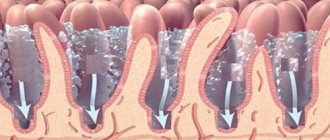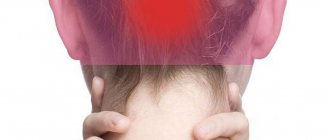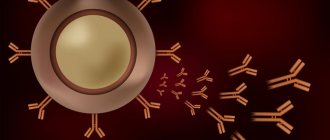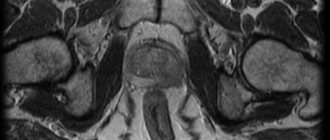According to scientists, people choose their soulmate based on body odor. It is believed that it is the sense of smell that allows you to select a partner with the most suitable set of genes. After all, a person is capable of secreting pheromones: substances that arouse interest in the opposite sex. However, there are situations when a particular odor emanating from the body should be perceived as a distress signal. After all, it can indicate the presence of a fairly serious disease. Doctors say that some diseases have their own “flavor”. Exactly how diseases smell and what you should pay attention to when a new smell appears - in the material AiF.ru.
Causes of odor
Human sweat is 88% water, the remaining 12% is various enzymes. The secretions of the sweat glands themselves do not smell of anything; the smell arises due to the interaction of bacteria with metabolic products. Depending on which enzyme predominates on the skin, one or another aroma appears - fish, onion, urine, sour apple, etc.
Urine contains ammonia with a characteristic pungent aroma. Cats have more of it, which is why the discharge has such a specific smell. Biochemical processes in the human body occur with the participation of proteins, fats, and carbohydrates. The main source of energy is carbohydrates; in their absence, the body begins to draw reserves from proteins. Fats perform a passive, reserve role and are used in minimal quantities as needed.
As a result of transformations, amino acids appear from proteins, which perform many useful functions. The main component of amino acids is ammonia, its chemical formula is NH3. In addition, nitrogen is part of vitamins, hormones, and lipids. During the process of biological transformations, a nitrogen atom is split off, and glucose is formed from the remaining part, which plays the role of fuel for the body. The nitrogen in urea comes out naturally.
If the kidneys do not perform their function, ammonia enters the sweat glands and is excreted in sweat. As a result of the activity of bacteria, a characteristic smell of urine appears. The more ammonia atoms, the stronger, more intense the stench.
External and internal factors can provoke disruption of biological metabolic processes. This is excessive consumption of protein foods, bad habits, endocrine diseases, hormonal imbalance and much more. Experts call the phenomenon uridrosis. A pathology in which a significant amount of waste with nitrogenous compounds, urea, uric acid is released with sweat.
Why does urine stink?
It’s quite difficult to call urine pleasant, much less aromatic. Despite this, the smell of fresh urine is not unbearably offensive either. This waste product of a healthy person begins to smell bad only after a reaction with air, over time. If, immediately after urination, the toilet is filled with a sharp, suffocating odor, this indicates serious problems in the body and requires medical attention.
Urine is a clear liquid that, in addition to water, contains urea, uric acid, mineral salts, creatinine, creatine, waste products unnecessary for the body, including toxic substances, as well as amino acid proteins, enzymes, various trace elements and pigments.
This composition of this biological fluid is formed by long-term filtration of blood: per day, the kidneys pass urine more than 300 times, in several stages. Thus, the body selects from the blood as much as possible everything it needs, sending only unnecessary waste and excess fluid to the bladder.
Why does urine stink? As already mentioned, urine begins to emit amber only after some time, after reacting with air. And the main role in the formation of odor in this case is played by urea.
The urine of a healthy person begins to “smell” only over time.
During the day, a person excretes about 30 grams of urea, and this is not accidental - it is urea that removes unnecessary nitrogen from the body. And when this compound decomposes, ammonia is formed, which colors urine with a characteristic “aroma”. If bacteria that feed on urea are in excess in the organs of the genitourinary system, the smell of ammonia will be heard immediately after urination. If a person is healthy, ammonia is released (and therefore the characteristic amber appears) only over time. That is why a sharp deterioration in the smell of urine is an important signal indicating an infection in the body.
Provoking factors
An increased amount of NH3 indicates an excessive replenishment of the body with proteins, especially with a deficiency of carbohydrates, as well as the presence of certain pathologies, resulting in metabolic failure and hormonal imbalance.
Hyperhidrosis
Increased sweating is often a consequence of another disease associated with pathologies of metabolic processes. Sweat is actively secreted in certain parts or throughout the body. An unpleasant odor is caused by bacteria that multiply in a humid environment. With an increased nitrogen content in the body, the stench of urine appears. Hyperhidrosis is quite difficult to cure, but it is possible to get rid of the smell of urine.
Poor hygiene
Within a few minutes after water procedures, various bacteria accumulate on the skin. In the absence of favorable conditions for reproduction, they do not cause harm and are invisible to humans. If you neglect the rules of hygiene, a whole colony of microorganisms and their waste products appears on the epidermis. Over time, the smell of urine appears. The situation is typical for older people, bedridden patients who are not properly cared for, people from disadvantaged families, and homeless people.
Smell of a cat
There are situations when a person begins to smell of cat feces. In this case, the body also signals about possible problems. For example, the smell of urea appears when:
- Kidney and liver diseases
- Pathologies of the endocrine system and VSD
- Tuberculosis
- Obesity
- Disturbances in the digestive system
Among the common causes of this “aroma” are kidney problems. After all, if their work malfunctions, the entire body as a whole reacts painfully to this. Moreover, you should understand that the smell of urea in this case will be strong, and it will be impossible to cope with it with improvised means: deodorants do not use this.
The problem develops due to the fact that protein breakdown products are excreted through the sebaceous glands. Doctors in this case talk about uricidosis, which can result from chronic nephritis, pyelonephritis and uremia.
Article on the topic
Fresh breath. How to eliminate bad breath
Sweat with the smell of urine in different situations
Sometimes the stench appears in certain situations, disappears after a while or periodically makes itself felt.
Sweat that smells like urine in a child
It occurs for all the reasons described above. But often this is an incorrect diet - excess protein, deficiency of carbohydrates, excessive physical activity. In adolescents, hormonal changes during puberty, nervous stress, metabolic disorders. In addition, an increase in acetone can occur due to improper functioning of the pancreas, after poisoning, problems with the pancreas, or with excessive activity.
During the heat
High ambient temperatures provoke increased sweating. Thus, a natural process of thermoregulation occurs. If hygiene is not observed, there are health problems, or hormonal imbalance, the smell of urine occurs. In addition, the stench appears after eating foods containing large amounts of protein or drinking a glass of beer.
At night
The situation is often associated with poor nutrition. A heavy dinner or overeating leads to slower digestion of food and strains the work of internal organs, including the liver and kidneys. This results in excessive sweating at night and unpleasant body odor in the morning. At night, the smell intensifies and the activity of harmful microorganisms increases. If you have a genitourinary infection, the stench begins in the evening.
After training
During intense physical activity, the muscles begin to produce nitrogen, which gradually enters the blood, sweat, and a specific smell of urine appears. The condition is aggravated by an incorrectly composed diet or unbalanced diet.
Eliminating other causes of unpleasant odor
It is more difficult to get rid of bad breath that is not related to dentistry. If the cause is metabolic disorders, treatment may take a long time. With diabetes, it is important to achieve stable blood glucose levels. Then the ammonia aroma will not bother you. To do this, patients with type 1 disease carefully select the dosage of insulin, and for type 2 diabetes mellitus, they are prescribed a balanced diet and medications to lower blood glucose.
For those with severe kidney problems, the only way to eliminate the smell of urea is to undergo hemodialysis. This is a method of artificial purification of blood plasma, which helps get rid of metabolic products.
Treatment of tonsillitis and respiratory pathologies is carried out with antibiotics. But with the chronic course of the pathology, this is a long process.
The most common cause of bad breath is improper oral care. By visiting the dentist at least once a year and choosing the right brush, paste and floss, you can avoid the onset of halitosis or treat it at an early stage.
Diagnostic methods
Symptoms of uridrosis are visible to the naked eye. If there is an unpleasant odor in urine due to other reasons, it is not always possible to recognize the problem during an external examination. Initially, you should seek help from a therapist. He gives a referral for examination, primarily of the kidneys. Then the patient may be referred for consultation to a dermatologist, venereologist, gynecologist, psychotherapist, endocrinologist, gastroenterologist, or oncologist. Be sure to examine urine and blood. Diagnostics of the abdominal organs is carried out. Treatment is prescribed after receiving the examination results, depending on the underlying cause.
The smell of asparagus
Quite often on medical forums you can come across questions about the unnatural smell of urine after eating. If you feel this way too, then you belong to an elite group of people blessed with a harmless DNA mutation.
This feature has a genetic basis and is inherited in an autosomal dominant manner. It reflects the ability to metabolize vegetable precursor compounds. This connection was discovered in 1975 by American chemist R. White, who examined the urine of 115 people who had previously eaten asparagus.
The odor was found to be directly related to the presence of two to seven milligrams of sulfur-containing alkyl derivatives in the urine. These compounds are not naturally found in asparagus and are the result of the metabolism of precursor compounds in this vegetable. In this case, there is nothing to worry about because these compounds are harmless to our body and the smell disappears after a few days.
Folk remedies
They help cope with the unpleasant odor of urine and are used in parallel with the main methods of therapy.
- Baking soda with soap. Laundry soap - 1 bar, rub on a fine grater, add 1 glass of water, cook until completely dissolved, add 1 tbsp. A spoon of baking soda. Used daily.
- Oak bark. Disinfects, relieves inflammation, eliminates odor. Pour 5 tbsp. 500 ml of water spoons of bark, boil over low heat for 15 minutes. Let it brew for 2 hours, wipe the skin several times a day.
- Apple vinegar. For 100 ml of water at room temperature, 1 dessert spoon of vinegar. Moisten gauze, a cotton pad, and wipe problem areas after water procedures. Be sure to use the vinegar solution before going to bed.
- Hydrogen peroxide. Mix with water in a ratio of 1:20. Wipe the skin.
- Lemon juice with soda. Take a teaspoon of baking soda and add the fresh juice of one lemon. Used to wipe problem areas.
- Homemade antiperspirant. Combine soda in equal proportions, corn starch - 1 tbsp. Spoon. Add 5 tbsp. Spoons of cocoa butter. Mix thoroughly. Store on the bottom shelf of the refrigerator.
When the smell of urine appears in sweat, associated with temporary exposure to provoking factors, the problem is quickly eliminated. Does not appear again if unfavorable factors are eliminated.
Diagnosis of kidney infection (pyelonephritis)
How do healthcare providers diagnose a kidney infection?
Health care providers use your medical history, physical examination, and tests to diagnose a kidney infection.
The doctor will ask if you have a history of health conditions that make you more likely to develop a kidney infection. During your physical examination, your health care professional will ask you about your symptoms.
If you are a man and your doctor suspects you have a kidney infection, he or she may do a digital rectal examination (DRE). During a DRE, your healthcare provider asks you to lean over a table or lie on your side, keeping your knees close to your chest. Wearing a glove, the health care professional places a lubricated finger into the anus to check for a swollen prostate or an enlarged prostate blocking the bladder neck.
What tests do doctors use to diagnose a kidney infection?
Doctors may use laboratory or imaging tests to diagnose a kidney infection.
Laboratory tests
Analysis of urine . For a urine test, you will collect a urine sample in a special container at your doctor's office or laboratory. The healthcare professional will examine the sample under a microscope to look for bacteria and white blood cells, which the body produces to fight infection. The bacteria can also be found in the urine of healthy people, so a kidney infection is diagnosed based on symptoms and laboratory testing.
Urine culture . A healthcare professional may culture the urine to find out what bacteria is causing the infection. A healthcare professional can see how the bacteria multiply, usually within 1 to 3 days, and then determine the best treatment.
Diagnostic tests
A healthcare professional may use diagnostic tests such as computed tomography (CT), magnetic resonance imaging (ultrasound), or ultrasound to help diagnose a kidney infection. A technician performs these tests at the NT-Medicine clinic. A technician can perform an ultrasound in a doctor's office. The radiologist reads and reports the images. You do not need anesthesia for these tests. Find out more about urinary tract imaging tests.
Reviews
Dear readers, your opinion is very important to us - therefore, we will be glad to receive feedback about sweat that smells like urine in the comments, this will also be useful to other users of the site.
Natalia:
“In the evening the child begins to smell of ammonia, and at night the smell of urine appears. It stinks so much you can't walk past it. I consulted with experts on the Internet, they write that it could be diabetes mellitus or kidney failure. We need to donate blood, check urea and creatinine. And also check the urine for the amount of protein.”
Catherine:
“My son periodically develops sweat with the smell of urine. Doctors said it was from excess protein. I noticed that this happens after eating meat. I didn’t give it for a long time, everything was fine, we tried again, the situation repeated itself. Apparently, he should be a vegetarian."
Smell of fish
While the properties of urine after eating asparagus were a natural consequence of metabolism, urine that has a fishy odor, although physically harmless, may be a more burdensome illness.
Trimethylaminuria (TMA), also known as fish odor syndrome, is a rare metabolic disorder in which the body lacks the FMO3 enzyme. This compound is involved in the conversion of trimethylamine, which is found, for example, in fish. When FMO3 is deficient or impaired, the body cannot break down TMA. Excess substance is excreted in the urine and then found in saliva.
Fish odor syndrome
Although the first diagnosed and medically documented case of this disease dates back to 1970, there are many references to this unpleasant disease in the literature. The Mahabharata, an ancient Hindu poem, describes a beautiful girl who exuded a fishy smell. Also in Shakespeare’s comedy “The Tempest,” one of the characters comments on Caliban’s illness: “What do we have here, a man or a fish? Alive or dead? It’s fish, it smells like fish!”
For unknown reasons, the disease is more common in women. Scientists suspect that female sex hormones such as progesterone and estrogen worsen symptoms.
Although there is no effective treatment for trimethylaminuria, patients are not doomed to social marginalization. By maintaining a healthy diet, avoiding legumes, certain fish, meats and foods containing nitrogen, carnitine and sulfur, you can reduce the amount of odor produced. In addition, antibiotics that reduce the concentration of bacteria in the digestive system and the use of acidic skin products with a pH of 6.5 will help.











